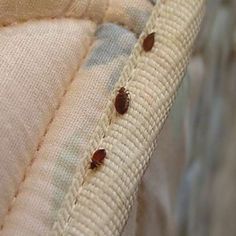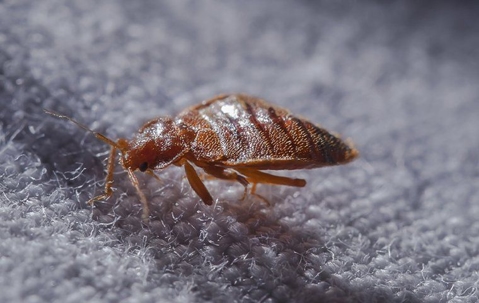Bed Bug Exterminator Houston Near Me: Quick and Efficient Bed Bug Solutions
Efficient Pest Control Actions to Protect Your Yard and Plants
In the realm of gardening, the harmony of a well-tended yard can frequently be interrupted by unwanted pests that endanger the health and wellness and vigor of plants. As gardeners make every effort to preserve a flourishing outdoor room, the obstacle of bug control arises as a vital aspect of their horticultural ventures. Carrying out reliable parasite control gauges not only safeguards the garden's visual charm however additionally plays an essential role in maintaining the plants' health. By checking out a variety of approaches that incorporate natural repellents, valuable pests, friend growing, do it yourself remedies, and environmentally-friendly chemicals, gardeners can browse the detailed globe of insect monitoring with precision and care.
Natural Pest Repellents

Another effective all-natural bug repellent is diatomaceous earth, a powdery substance made from fossilized aquatic organisms. Diatomaceous earth works by literally damaging pests with its abrasive appearance, making it an exceptional choice for regulating pests like slugs, beetles, and caterpillars. In addition, planting friend plants like marigolds, lavender, or basil can assist fend off insects because of their strong fragrances or natural chemical substances.
Beneficial Insects for Insect Control

Another useful bug is the parasitical wasp, which lays its eggs inside pest insects, ultimately eliminating them. Ground beetles are excellent for controlling caterpillars, snails, and slugs. Hoverflies, usually incorrect for bees because of their comparable appearance, feed on aphids, thrips, and caterpillars.
To draw in advantageous pests to your yard, you can plant a varied variety of blooming plants, such as dill, fennel, and yarrow, which offer nectar and pollen for adult insects. In addition, prevent making use of broad-spectrum pesticides that can damage both dangerous and beneficial pests. By developing an inviting setting for these advantageous bugs, you can minimize the requirement for chemical pesticides and promote a healthier, extra well balanced yard environment.
Buddy Growing Strategies
When aiming to improve the effectiveness of advantageous insects in your garden for natural parasite control, considering buddy growing approaches can additionally optimize the ecological community balance. Buddy growing includes tactically putting particular plants following to each other to maximize their shared advantages, such as deterring insects, attracting valuable insects, or improving nutrition uptake - bed bug exterminator houston near me. One popular example is growing marigolds alongside tomatoes to drive away nematodes and other harmful pests while likewise bring in pollinators
In addition, integrating fragrant herbs like basil, mint, or rosemary in between vegetable rows can assist hinder insects with their strong fragrances. An additional reliable approach is planting blossoms such as sunflowers, zinnias, or universes to bring in pollinators like and butterflies, which consequently can assist in pollinating your fruit and veggie plants. In addition, planting catch crops like nasturtiums can draw away pests away from your primary plants, functioning as sacrificial plants that safeguard your valuable produce. By carrying out friend planting strategies, you can produce a varied and harmonious yard ecological community that naturally regulates bugs while advertising plant health and wellness and productivity.
Do It Yourself Bug Control Solutions
To effectively manage pests in your yard, implementing diy pest control solutions can be a cost-effective and eco-friendly strategy. One typical DIY parasite control option is creating self-made insecticidal soaps by mixing light soap with water to manage soft-bodied bugs like aphids, termites, and whiteflies. linked here In addition, introducing useful bugs such as ladybugs, lacewings, and aggressive wasps can assist naturally control bug populations in your yard. Establishing up physical obstacles like row covers or netting can also avoid bugs like caterpillars from damaging your plants.
Another effective method is utilizing diatomaceous earth, a natural powder that can be sprinkled around plants to prevent slugs, snails, and other learn the facts here now creeping insects. Friend growing particular herbs and flowers like marigolds, basil, and lavender can help fend off pests and bring in beneficial pests. On a regular basis evaluating your plants for signs of bug damage and immediately eliminating any kind of impacted locations can also protect against problems from spreading. By including these DIY pest control options right into your horticulture regimen, you can shield your yard and plants without counting on extreme chemicals.
Environmentally-Friendly Pesticides

Another effective option is diatomaceous earth, an all-natural compound made from fossilized water microorganisms, which can be sprayed around plants to control slugs, snails, and other crawling pests. Additionally, insecticidal soaps and oils originated from plant-based resources more work for regulating soft-bodied parasites like aphids, mites, and whiteflies.
Conclusion
Finally, reliable insect control measures such as all-natural repellents, valuable pests, companion planting methods, do it yourself remedies, and environmentally-friendly chemicals are vital for securing your yard and plants. By applying these techniques, you can stop damages brought on by bugs and preserve a healthy and successful yard environment. It is essential to take into consideration the long-term effect of utilizing chemicals and go with more lasting and environment-friendly options to make certain the health and health of your plants and the atmosphere.